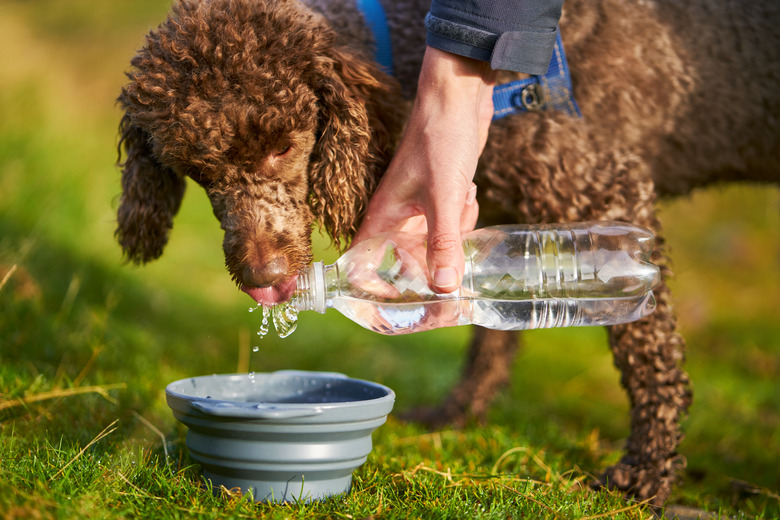What Helps Soften My Dog's Stool?
Your dog's digestive habits can tell you a lot about his overall health and well-being. If your dog is straining when he poops or if his bathroom cycles are a bit out of the norm, you might wonder how to soften his stool. There are steps you can take at home to get your dog's bathroom habits back on track. However, if constipation occurs for more than 48 hours or is accompanied by other symptoms including loss of appetite or vomiting, stop using home remedies and take your dog to the vet.
Why is my dog’s stool hard?
Why is my dog's stool hard?
An ideal dog stool is firm, segmented in appearance, and leaves little to no residue on the ground when picked up. The longer feces stay in the colon, the more water that is absorbed. This can produce hard stools and lead to constipation and discomfort. Hard stools and constipation can occur in dogs of all ages due to dehydration, lack of exercise, nutritional needs, or an underlying health condition.
How to soften your dog's stool
How to soften your dog's stool
If your dog is experiencing hard stool, here's how you can help.
Encourage your dog to drink water
Provide access to clean, fresh water throughout the day. Water helps to keep the body hydrated and prevents the resorption of too much water from the feces in the gut. If your dog shows signs of dehydration or has a sudden change in drinking habits, this should be discussed with your vet.
Add fiber supplements to your dog's diet
Some dogs suffer from constipation due to a lack of fiber in their diets. Psyllium seed husk can be an effective herbal remedy to soften stool and is readily available over the counter. An easy way to give dogs psyllium seed husk is by adding generic Metamucil to his meals. One capsule per 20 pounds of body weight every 12 hours should soften his stool.
Take your dog on routine walks
At times, dogs tend to suppress the urge to defecate. This can cause the stools to harden as it is retained in the colon. Take your dog out for walks more frequently to prevent this from occurring. Lack of exercise can cause the bowels to become sluggish. Running and playing will help to prevent constipation and the hardening of stools.
Use an over-the-counter stool softener for dogs
Stool softeners for dogs help to soften the stools and prevent straining. There are some softeners that you can buy over the counter and may already have at home. One-fourth of a teaspoon of MiraLAX powder per ten pounds of body weight every eight hours should reduce straining and constipation. Before giving any human medications or supplements to your pet, talk to your vet.
Foods to help dogs poop
Foods to help dogs poop
Most dogs love to eat canned pumpkin. It's rich in fiber and helps to soften the stool. Feed the pumpkin on its own or mix it in with your dog's meal. One tsp. to 1/2 cup of pumpkin is sufficient. Vary the amount based on the size of your dog. Even oat bran is a good source of fiber. Give the dog one tsp. initially and slowly increase the quantity to two tsp. or until the dog has a smooth bowel movement without straining.
Giving dogs milk for constipation
The lactose in the milk tends to attract moisture into the colon and helps to increase the movement of the intestines. This causes bowel movement, but it could cause too much movement and lead to diarrhea and vomiting. Milk as a dog-safe stool softener should be a last resort and only given as directed by your vet.
Prescription stool softeners for dogs
Prescription stool softeners for dogs
If constipation persists, then it's time to consult your vet. Your vet may prescribe a stool softener for your dog. Products containing lactulose help draw water into the intestines and soften the stools. DSS capsules is a commonly prescribed stool softener for dogs. Follow the vet's instructions carefully to prevent adverse affects.
Precautions: Dog bones can lead to constipation
Precautions: Dog bones can lead to constipation
Avoid giving your dog too many bone treats, such as raw bones and biscuit bones. Eating too many of these treats can lead to constipation. Refrain from giving the treats if your dog is constipated.


